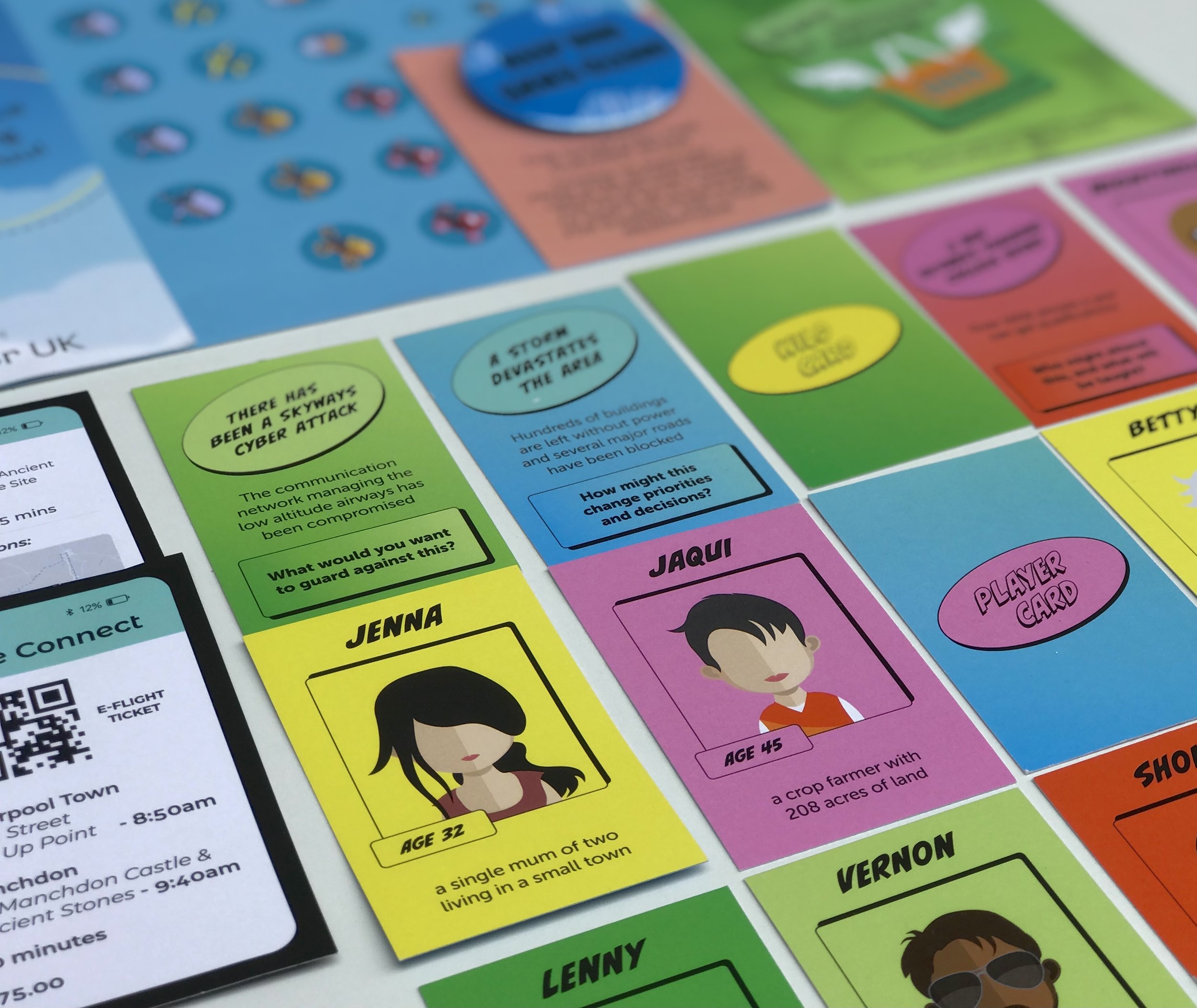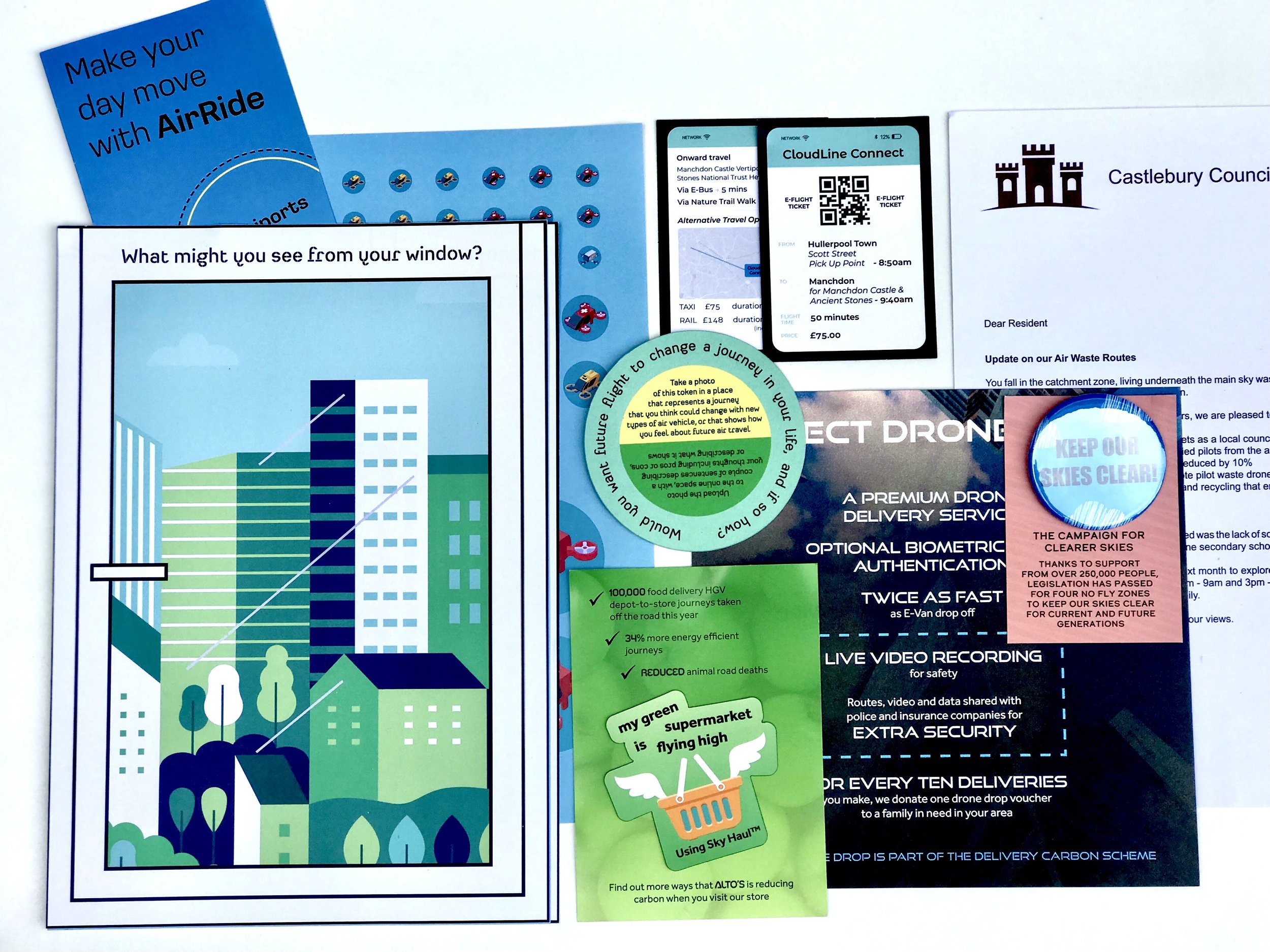Future Flight
What was the challenge?
The Future Flight Challenge has set the vision for the future aviation system, exploring greener ways to fly and how we might use automated and drone technology for travel, logistics and services in the year 2030.
The technology that is being developed is innovative and exciting, pioneered by leading tech companies and funded by the government. But what will it mean for the public? How will our landscapes and towns and cities change? Who will be in charge of regulating and taking care of our safety- on the ground and in the skies?
We partnered with IPSOS Mori to design an imaginative dialogue process asking people from across the UK to consider how this new infrastructure might change the future and share their hopes and fears for how it might affect their lives. Thinking about how future flight possibilities might create opportunities and problems for different groups of people, we held a series of workshops to gather insight into what the government and the Future Flight team should prioritise next, and who else they should consult on the journey to our new horizons.
What did we do?
Using gamification, film and physical materials, we developed a series of three workshops to bring to life an imagined world from the future that people could position themselves in. During each session, members of the public from across the UK were asked to come together to discuss the positive and negative impacts of new developments in aviation.
Each participant received an activity pack in the post containing fictional brands and materials to explore the possibilities of Future Flight technology, including brochures for a new local ‘Vertiport’ (a floating airport in the sky), a campaign badge from activists urging for ‘Clearer Skies’ and advertising programmes for premium drone delivery companies. Participants worked collectively to design a ‘Skyway’ outside of their windows to encourage reflection on how our immediate surroundings might change with the introduction of new aircrafts and technologies and how this might impact communities in different places.
During the second workshop, participants were given tokens to place around their homes to pre-empt questions of how future flight technology might affect their daily lives and commutes. Fictional newsreels and promotional films- such as an advert for ‘The House Built By Drones’ - provided visual anchors for imagining new possibilities and made a topic that is often regarded as dystopic feel less ominous and more playful.
During the final workshop, our facilitators used maps and storytelling to create role play scenarios, allowing participants to put themselves in the shoes of fictional characters like Kieran- a bus driver in central Birmingham - or Jenna- a single mum raising two kids in the remote countryside- who might be impacted by the development of new aviation technologies and think more deeply about how we could utilise these to connect different locations across the UK in a positive way.
Top: ‘Skyways Map’ used by participants in Workshop 3
Bottom: Participant responses on the Online Community Board to ‘Your Environment’ prompts, Workshops flowchart






